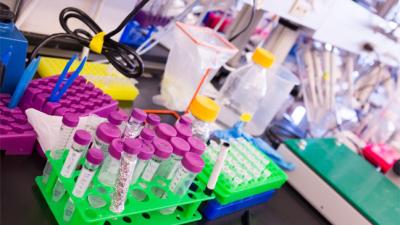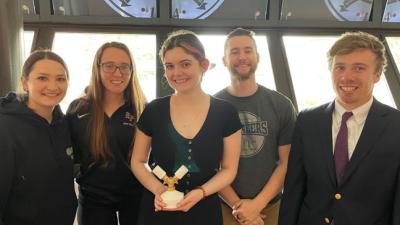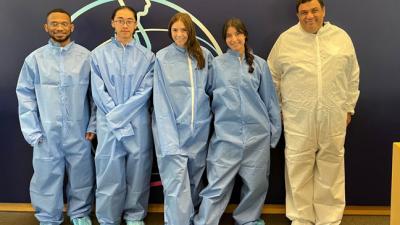BME News
Six RPI students have been awarded fellowships from the National Science Foundation’s Graduate Research Fellowship Program (GRFP).
Joan Llabre, Ph.D. '23, who received her doctorate in biomedical engineering from Rensselaer Polytechnic Institute this past fall and is now a postdoctoral researcher at the Institute, has won the Koerner Family Foundation Fellowship, which supports engineers pursuing careers in research.
Using artificial intelligence tools to analyze years of biomedical data, researchers at Rensselaer Polytechnic Institute have discovered a possible connection between sleep, gastrointestinal health, and two potentially harmful behaviors often associated with profound autism: self-injury and aggression. Their study is published in the Journal of Personalized Medicine.
This spring, a team of biomedical engineering students at Rensselaer Polytechnic Institute helped create a critical component that may be used to diagnose skin cancer rapidly and at the point of care, pending FDA clearance.
Rensselaer Polytechnic Institute has established the Office of Strategic Alliances and Translation, a new area within the university that incorporates a number of key translational activities at RPI, including intellectual property and technology licensing, large-scale corporate partnerships, initiation and growth of start-up ventures, and translational campuses, including the Rensselaer Technology Park, as well as translational activities in New York City.
This past summer, a team of Rensselaer Polytechnic Institute students, with the guidance of a faculty mentor, pitched a winning design for a wearable, medical-grade device that monitors for atrial fibrillation. Atrial fibrillation, or A-fib, is a potentially life-threatening heart condition that will affect an estimated 12 million people in the U.S. by 2030, according to the Centers for Disease Control and Prevention.




 Six RPI Students Receive Prestigious NSF Graduate Research Fellowships
Six RPI Students Receive Prestigious NSF Graduate Research Fellowships
 RPI Grad, Now Postdoc, Wins Prestigious Koerner Family Foundation Fellowship
RPI Grad, Now Postdoc, Wins Prestigious Koerner Family Foundation Fellowship
 Researchers Use AI To Predict Challenging Behaviors Common in Profound Autism
Researchers Use AI To Predict Challenging Behaviors Common in Profound Autism
 Rensselaer Students Help Revolutionize Skin Cancer Diagnostics
Rensselaer Students Help Revolutionize Skin Cancer Diagnostics
 RPI Creates Office of Strategic Alliances and Translation
RPI Creates Office of Strategic Alliances and Translation
 Rensselaer Students Win National Competition for Heart Monitoring Device Design
Rensselaer Students Win National Competition for Heart Monitoring Device Design